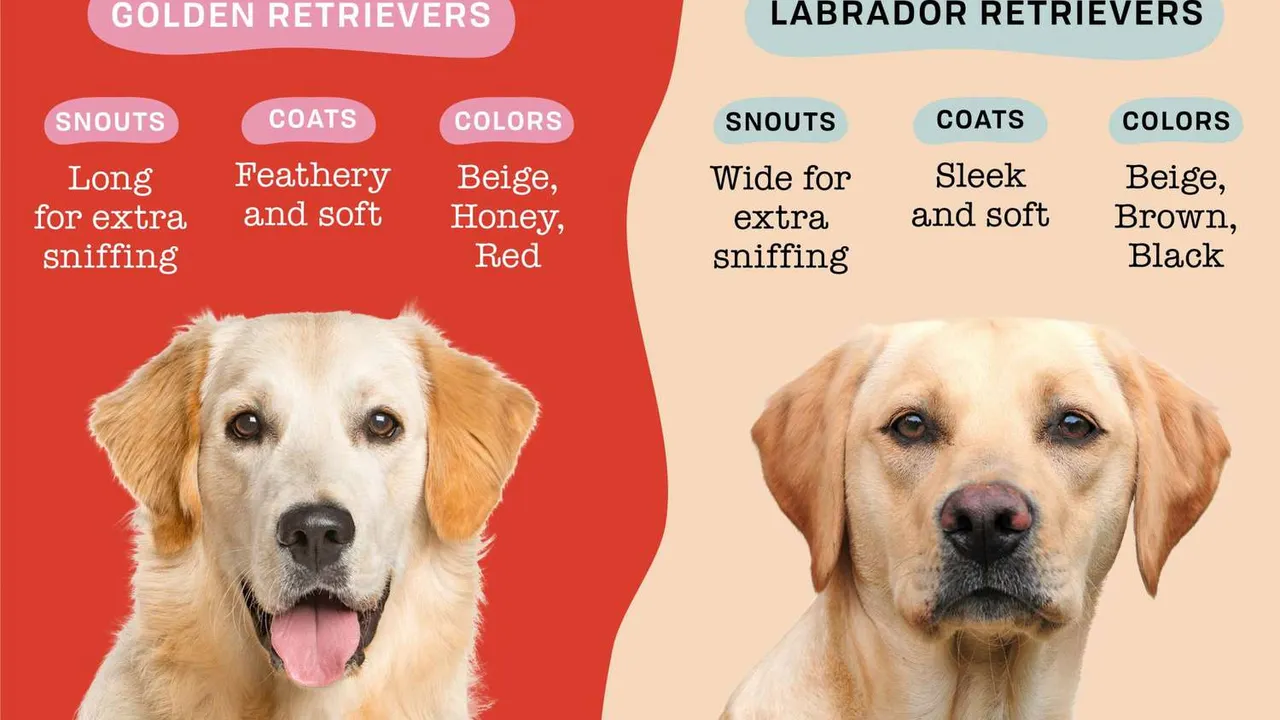5 Common Pet Health Problems and How to Prevent Them

Protect your pet from common health issues. This article provides preventive measures for common ailments. Keep your pet healthy and happy.
Understanding Common Pet Health Issues
Let's face it, our furry, scaled, or feathered friends aren't immune to health problems. Just like us, they can get sick, injured, or develop chronic conditions. Being proactive about their health is key to a long and happy life together. This isn't about being a helicopter parent to your pet, but rather being an informed and responsible owner.
Preventing Parasites: Fleas, Ticks, and Worms
Parasites are a common nuisance for many pets, especially dogs and cats. Fleas and ticks can cause skin irritation, allergic reactions, and even transmit diseases like Lyme disease. Worms, on the other hand, can lead to digestive issues and malnutrition.
Flea and Tick Prevention
The market is flooded with flea and tick prevention products, so choosing the right one can be overwhelming. Here are a few options:
- Topical Treatments: These are applied directly to your pet's skin, usually between the shoulder blades. Brands like Frontline, Advantage, and Revolution are popular choices. They typically offer monthly protection.
- Oral Medications: These are given as a pill or chewable tablet. Brands like NexGard and Bravecto provide longer-lasting protection, sometimes up to three months.
- Flea and Tick Collars: These collars release medication over time to repel and kill fleas and ticks. Seresto collars are a well-known brand, offering several months of protection.
Product Comparison:
| Product | Type | Duration | Price (Approximate) | Pros | Cons |
|---|---|---|---|---|---|
| Frontline Plus | Topical | Monthly | $15/dose | Readily available, effective against fleas and ticks | Can leave oily residue, some pets are sensitive |
| NexGard | Oral | Monthly | $25/dose | Easy to administer, effective against fleas and ticks | Requires a prescription, some pets experience side effects |
| Seresto Collar | Collar | 8 Months | $60 | Long-lasting, convenient | Can be bulky, potential for collar to get caught |
Usage Scenario: If you live in an area with a high tick population, a longer-lasting option like NexGard or the Seresto collar might be best. For pets with sensitive skin, a topical treatment with a gentle formula might be more suitable. Always consult with your vet to determine the best option for your pet.
Worm Prevention
Regular deworming is crucial for preventing and treating intestinal worms. Your vet can recommend a deworming schedule based on your pet's lifestyle and risk factors. Common deworming medications include pyrantel pamoate and praziquantel.
Addressing Dental Disease in Pets
Dental disease is incredibly common in pets, especially as they age. It starts with plaque and tartar buildup, which can lead to gingivitis (inflammation of the gums) and eventually periodontitis (more severe gum disease). This can cause pain, tooth loss, and even affect your pet's overall health.
Preventing Dental Disease
The best way to prevent dental disease is through regular teeth cleaning. Here are a few options:
- Brushing: Daily brushing is ideal, but even a few times a week can make a difference. Use a pet-specific toothbrush and toothpaste (never human toothpaste, as it can be toxic to pets).
- Dental Chews: These chews help to scrape away plaque and tartar as your pet chews. Brands like Greenies and CET chews are popular choices.
- Dental Diets: Some pet food brands offer diets specifically formulated to promote dental health. These diets often have larger kibble sizes that help to clean teeth as your pet eats.
- Professional Cleanings: Regular professional dental cleanings by your vet are essential for removing stubborn plaque and tartar buildup. These cleanings are typically performed under anesthesia.
Product Recommendations:
- Virbac C.E.T. Enzymatic Toothpaste: This toothpaste is specifically formulated for pets and contains enzymes that help to break down plaque and tartar. Available for around $10.
- Greenies Dental Treats: These treats are designed to clean teeth as your dog chews. A bag of Greenies costs around $20.
- Hill's Prescription Diet t/d Dental Care: This dry food is formulated to reduce plaque and tartar buildup. A bag costs around $40.
Usage Scenario: Start with brushing your pet's teeth a few times a week. Supplement with dental chews and a dental-specific diet. Schedule regular professional cleanings with your vet to maintain optimal dental health. The combination of these methods will significantly reduce the risk of dental disease.
Managing Obesity and Weight Control
Obesity is a growing problem in pets, just like it is in humans. Overweight pets are at a higher risk for a variety of health problems, including diabetes, arthritis, heart disease, and certain types of cancer.
Preventing and Managing Obesity
The key to preventing and managing obesity is through diet and exercise.
- Portion Control: Measure your pet's food and avoid free-feeding. Follow the feeding guidelines on the food label, but adjust as needed based on your pet's individual needs.
- Healthy Diet: Choose a high-quality pet food that is appropriate for your pet's age, breed, and activity level. Look for foods with a high protein content and moderate fat content.
- Regular Exercise: Exercise is crucial for burning calories and maintaining a healthy weight. Take your dog for walks, play fetch, or engage in other activities that get them moving. For cats, provide climbing structures, toys, and interactive play sessions.
- Limit Treats: Treats should only make up a small portion of your pet's daily calorie intake. Choose healthy treats like fruits and vegetables (check for pet-safe options) or low-calorie commercial treats.
Product Examples:
- Royal Canin Veterinary Diet Satiety Support: This diet is formulated to help pets feel full and satisfied while reducing calorie intake. Price: Approximately $50 per bag.
- Kong Wobbler: This toy dispenses food as your dog plays, encouraging them to eat slower and exercise at the same time. Price: Around $20.
- PetSafe SlimCat Interactive Feeder: This toy encourages cats to hunt for their food, providing mental stimulation and exercise. Price: About $15.
Usage Scenario: Start by measuring your pet's food and adjusting the portion size based on their weight and activity level. Incorporate interactive toys and puzzle feeders to encourage them to eat slower and exercise. Consult with your vet to determine the best diet and exercise plan for your pet.
Preventing Poisoning: Household Hazards to Watch Out For
Many common household items can be poisonous to pets. It's important to be aware of these hazards and take steps to prevent your pet from ingesting them.
Common Household Poisons
- Chocolate: Chocolate contains theobromine, which is toxic to dogs and cats. Dark chocolate is more toxic than milk chocolate.
- Xylitol: This artificial sweetener is found in many sugar-free products, such as gum, candy, and baked goods. It can cause a rapid drop in blood sugar and liver failure in dogs.
- Household Cleaners: Many cleaning products contain chemicals that can be harmful if ingested. Keep these products out of reach of pets.
- Medications: Both prescription and over-the-counter medications can be toxic to pets. Never give your pet human medication without consulting with your vet.
- Plants: Many common houseplants are toxic to pets. Research which plants are safe before bringing them into your home.
Preventing Poisoning
- Store Hazardous Items Out of Reach: Keep cleaning products, medications, and other potentially toxic items in locked cabinets or high shelves.
- Read Labels Carefully: Be aware of the ingredients in the products you use and avoid using products that contain toxic substances.
- Know Which Plants Are Toxic: Research which plants are safe for pets before bringing them into your home.
- Keep Pets Away During Cleaning: When cleaning with potentially harmful products, keep your pet in a separate room until the area is dry and well-ventilated.
Addressing Arthritis and Joint Pain
Arthritis is a common condition in older pets, especially dogs. It causes pain, stiffness, and decreased mobility.
Managing Arthritis
While there is no cure for arthritis, there are many things you can do to manage the symptoms and improve your pet's quality of life.
- Weight Management: Maintaining a healthy weight is crucial for reducing stress on the joints.
- Exercise: Regular, low-impact exercise can help to keep the joints flexible and strong.
- Medications: Your vet may prescribe pain medication, anti-inflammatory drugs, or joint supplements to help manage the pain and inflammation.
- Joint Supplements: Supplements like glucosamine and chondroitin can help to protect and repair cartilage.
- Comfortable Bedding: Provide your pet with a soft, comfortable bed to sleep on. Orthopedic beds can provide extra support for the joints.
Product recommendations:
- Cosequin Joint Health Supplement: A popular supplement containing glucosamine and chondroitin. Costs around $30.
- Orthopedic Dog Bed by Big Barker: Designed to provide support for larger dogs with joint pain. Price: around $250.
Usage Scenario: Implement a weight management plan in combination with regular, gentle exercise. Ask your vet about pain medication and joint supplements. Provide your pet with a comfortable orthopedic bed. Regular veterinary check-ups are crucial for monitoring the progress and making adjustments to the treatment plan.
:max_bytes(150000):strip_icc()/277019-baked-pork-chops-with-cream-of-mushroom-soup-DDMFS-beauty-4x3-BG-7505-5762b731cf30447d9cbbbbbf387beafa.jpg)






